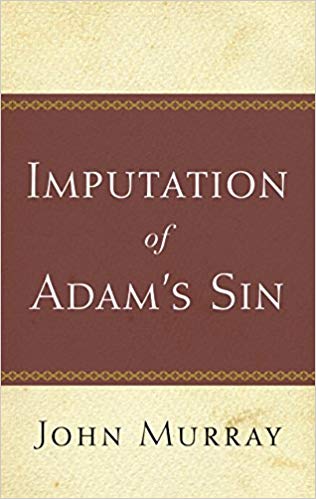A Brief Book Summary from Books At a Glance
By Jenny-Lyn de Klerk
Table of Contents
Chapter 1
1. Syntactical Construction
2. The Sin Contemplated
Chapter 2
3. The Union Involved
Chapter 3
4. The Nature of Imputation
Chapter 4
5. The Sin Imputed
Overview
Murray defines the imputation of Adam’s sin by expositing Romans 5:12-19 and exploring historical interpretations of these verses in light of the deviation of contemporary Protestant scholars from the classical definition of imputation.
Summary
Chapter 1
1. Syntactical Construction
Murray claims that though many contemporary Protestants affirmed the idea of humanity’s solidarity in sin and guilt, they do not affirm the traditional Protestant doctrine of imputation. Many scholars do not do justice to Romans 5:12-19 because it is so difficult to interpret, but this passages is the pinnacle of Paul’s argument and must be dealt with thoroughly. Thus, Murray sets out to exposit it carefully.
The main thing to be said about the syntactical construction of Romans 5:12 is that it is “an unfinished comparison” (7). This is seen in the fact that verse 13 introduces a parenthetical statement; this parenthesis is not useless but very useful in explaining verse 12.
Chapter 2
The Sin Contemplated
In verse 12 Paul states that all die because all have sinned. The meaning of this phrase is what is at stake in the doctrine of imputation. The Pelagian view states that this verse refers to actual sins of people, making Adam the original sinner who all other sinners imitate. Though the syntax of this statement does not necessarily exclude this interpretation, other factors do. First, it is not true that all die because they sin, as seen, for example, in the death of infants. Second, Paul says in verses 13 and 14 that death came to those who did not sin like Adam. In other words, “death reigns universally and therefore reigns over those who are in a different category from that of Adam” (10). Third, Paul repeatedly says that the universal experience of condemnation is the one sin of Adam, which cannot possibly mean the personal sin of several individuals. Fourth, the Pelagian view cannot make sense of the parallel Paul sets up between Adam and Christ to say that people are justified by grace because of the righteousness of Christ.
[To continue reading this summary, please see below....]The remainder of this article is premium content. Become a member to continue reading.
Already have an account? Sign In
